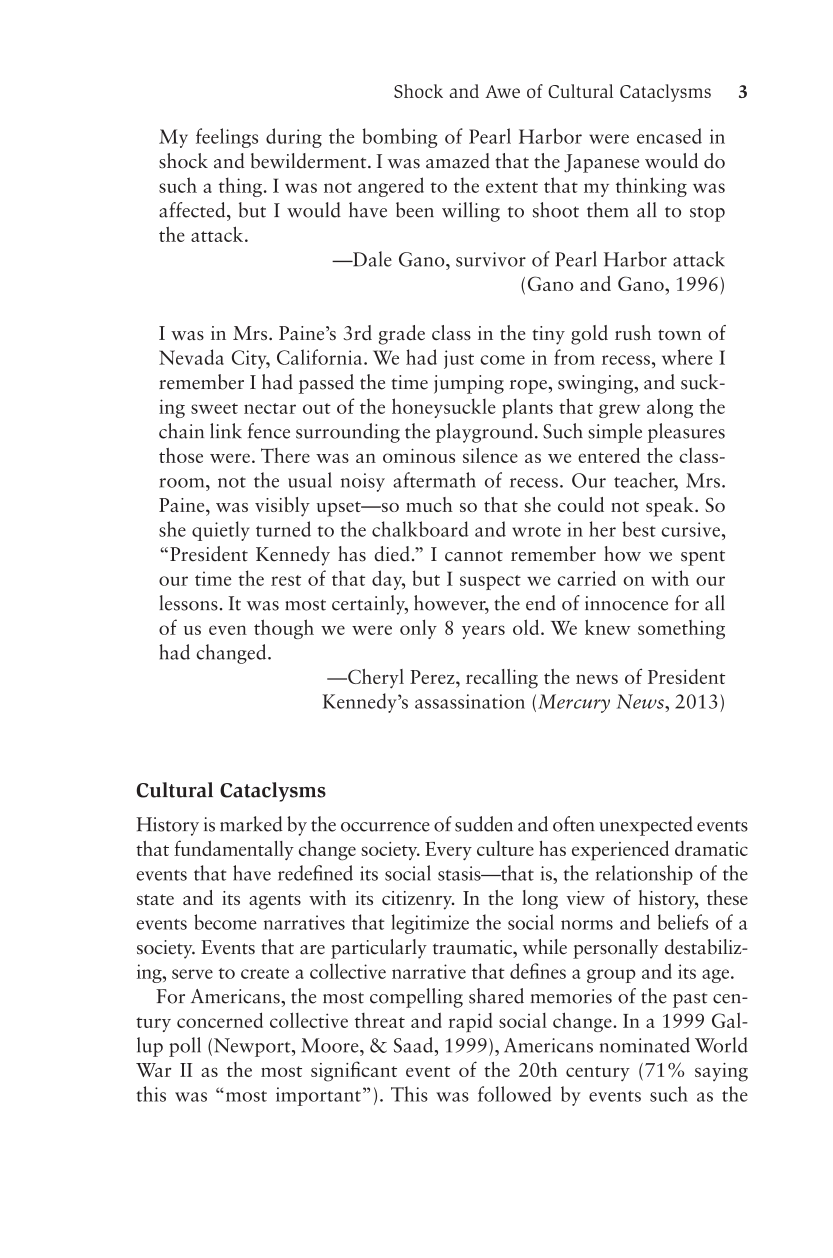Shock and Awe of Cultural Cataclysms 3
My feelings during the bombing of Pearl Harbor were encased in
shock and bewilderment. I was amazed that the Japanese would do
such a thing. I was not angered to the extent that my thinking was
affected, but I would have been willing to shoot them all to stop
the attack.
—Dale Gano, survivor of Pearl Harbor attack
(Gano and Gano, 1996)
I was in Mrs. Paine’s 3rd grade class in the tiny gold rush town of
Nevada City, California. We had just come in from recess, where I
remember I had passed the time jumping rope, swinging, and suck-
ing sweet nectar out of the honeysuckle plants that grew along the
chain link fence surrounding the playground. Such simple pleasures
those were. There was an ominous silence as we entered the class-
room, not the usual noisy aftermath of recess. Our teacher, Mrs.
Paine, was visibly upset—so much so that she could not speak. So
she quietly turned to the chalkboard and wrote in her best cursive,
“President Kennedy has died.” I cannot remember how we spent
our time the rest of that day, but I suspect we carried on with our
lessons. It was most certainly, however, the end of innocence for all
of us even though we were only 8 years old. We knew something
had changed.
—Cheryl Perez, recalling the news of President
Kennedy’s assassination (Mercury News, 2013)
Cultural Cataclysms
History is marked by the occurrence of sudden and often unexpected events
that fundamentally change society. Every culture has experienced dramatic
events that have redefined its social stasis—that is, the relationship of the
state and its agents with its citizenry. In the long view of history, these
events become narratives that legitimize the social norms and beliefs of a
society. Events that are particularly traumatic, while personally destabiliz-
ing, serve to create a collective narrative that defines a group and its age.
For Americans, the most compelling shared memories of the past cen-
tury concerned collective threat and rapid social change. In a 1999 Gal-
lup poll (Newport, Moore, & Saad, 1999), Americans nominated World
War II as the most significant event of the 20th century (71% saying
this was “most important”). This was followed by events such as the







































































































































































































































































